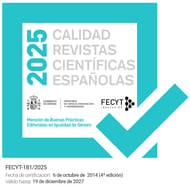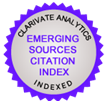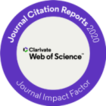Detección de plagio
La Revista de Filología de la Universidad de La Laguna está firmemente comprometida con la detección de las distintas prácticas de plagio. En particular, y siguiendo las recomendaciones expresadas por el Committee on Publication Ethics (COPE), presta especial cuidado tanto a que los textos recibidos para evaluar sean contribuciones originales e inéditas, y que no hayan sido publicadas parcial o totalmente bajo cualquier formato de difusión científica, como a que durante todas las etapas del proceso editorial quede garantizado un comportamiento ético, de modo que los trabajos originales mantengan su contenido y su autoría en el anonimato desde su recepción hasta la fase final de publicación.
Las contribuciones recibidas pasan por una primera fase de revisión, que lleva a cabo el Equipo directivo con el asesoramiento de los miembros expertos de los distintos campos filológicos que forman parte del Consejo de redacción y del Comité científico asesor, a fin de detectar, en su caso, la existencia de coincidencias parciales o totales que sean indicativas de plagio. Si se comprobara que se ha incurrido en esta práctica fraudulenta, dicho trabajo sería rechazado inmediatamente y se pondría en conocimiento del autor/a esta grave circunstancia. En caso de duda, se instaría al autor/a a demostrar que no se ha cometido fraude, siquiera parcialmente, en la redacción del trabajo; y, en todo caso, se le conminaría a que corrigiera lo que se le hubiera señalado y enviara de nuevo su artículo para que pudiera ser revisado y quedara garantizada así la ausencia de plagio en el texto.
Si, no obstante, una vez enviado a evaluar, alguno de los evaluadores/as detectara alguna incidencia de este tipo, se harían las comprobaciones oportunas, a fin de que el Equipo directivo de la revista adoptara una decisión definitiva, de la que se informaría al autor/a del trabajo a través de los cauces previstos en OJS.
Adicionalmente y, como recurso de apoyo, el Equipo directivo emplea el servicio Turnitin, licenciado a la Universidad con carácter corporativo.








